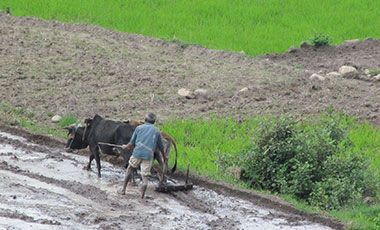Inclusive economic growth requires a better understanding of the drivers of agricultural change and strategies for rural transformation that can contribute to poverty reduction, food security, and nutrition.
IFPRI’s research on this strategic area:
- Focuses on development strategies and agricultural policies that encourage inclusive rural growth, using “on-the-ground” research and engagement with policy makers in developing countries.
- Analyzes the demographic and economic forces driving changing farm sizes and labor costs, including gender issues, and considers impacts on land access and farmers’ decisions to adopt technologies, including mechanization and information and communication technologies.
- Assesses rural transformation, focusing on the role of rural towns and “growth corridors” in creating more jobs within and beyond agriculture, as well as policy options to enable private investment in these areas.
- Provides assessments of the returns to public investments in agriculture and rural areas to help governments and international organizations decide where and how scarce resources should be invested and distributed.
- Addresses knowledge gaps regarding the factors driving migration (such as conflicts and climate change) within and between countries, the effects of migration in both origin and destination communities and on migrants themselves, and how remittances impact agricultural and rural development.
- Investigates the potential for win-win solutions for refugees and their hosting communities.
- Identifies strategies to involve youth in agriculture, raise labor productivity, and create rural nonfarm job opportunities.
- Examines urban economic growth, persistent inequality, and industrialization and automation of agrifood systems, as well as the role of smallholders— particularly women farmers—and public-private partnerships in these processes.
- Studies public investment, including the energy and other infrastructure needed for rural transformation as well as opportunities created by recent technological advances.
- Analyzes innovative institutional arrangements within the public sector to enhance rural service delivery and ensure efficient use of limited resources.
- Identifies policies to accelerate rural transformation and make it more inclusive and economically sustainable.

